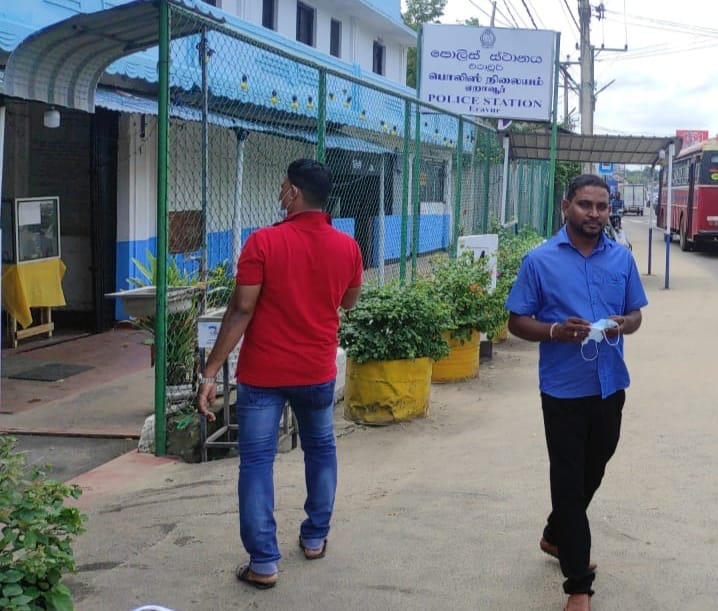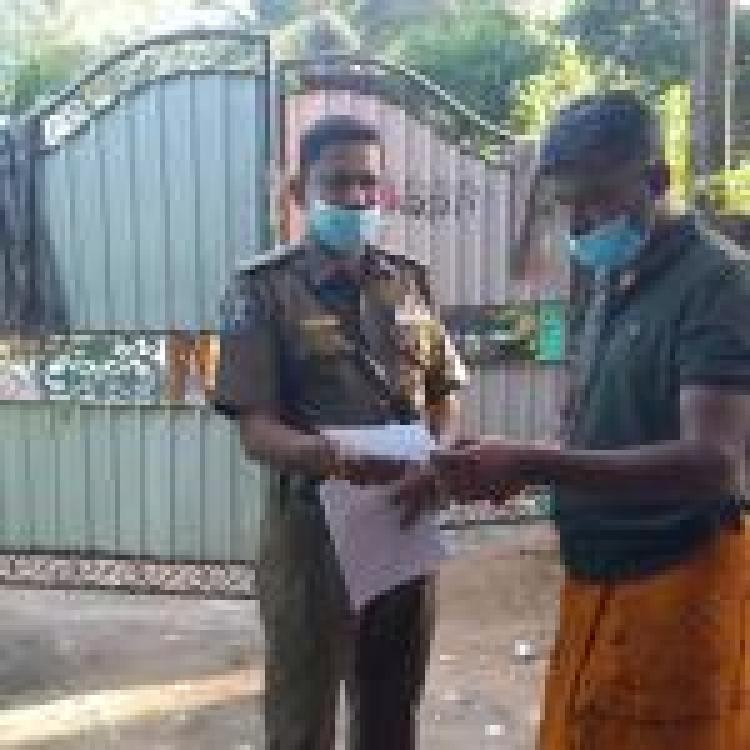Selvakumar Nilanthan, a Tamil journalist and Batticaloa Press Club secretary, was interrogated for two hours by officers from Sri Lanka's Criminal Investigation Department (CID) earlier this week.
Two CID officers from Eravur police station visited Nilanthan's house twice ordering Nilanthan to go to Eravur police station for questioning over his alleged links to the Tamil diaspora.
Some of the questions Nilanthan was asked were:
"Which media do you work for? Are you a former member of the LTTE? Have you been rehabilitated? Do you get money from abroad? Do you have any connections to Thayamohan, the former LTTE Batticaloa political head?"
The officers told Nilanthan that they had received complaints from Colombo that he had links to the diaspora, therefore he was called for questioning.
This is not the first time Nilanthan has been under interrogation. In July 2020, Sri Lanka's Terrorism Investigation Department (TID) summoned Nilanthan to their Batticaloa office where they demanded Nilanthan to disclose his personal and financial details. He was asked a significant amount of questions about his accounts and the passwords and told to give full access to his Facebook account, Whatsapp account, email account, bank account and other personal details.
At the time, the Committee to Protect Journalists (CPJ) said:
“The interrogation of Sri Lankan journalist Selvakumar Nilanthan—including demands for access to his social media and bank accounts–adds to the pattern of harassment of Tamil members of the press and needs to stop immediately,” said Steven Butler, CPJ’s Asia program coordinator. “Authorities must cease trying to intimidate Nilanthan and allow him and all other Tamil journalists to report freely.”
Sri Lanka which is currently ranked 127th out of 180 countries in Reporters Without Borders (RSF) 2021 World Press Freedom Index, has seen an alarming increase in attacks and harassment against journalists, particularly in the North-East for reporting on issues affecting Tamils in the homeland.


